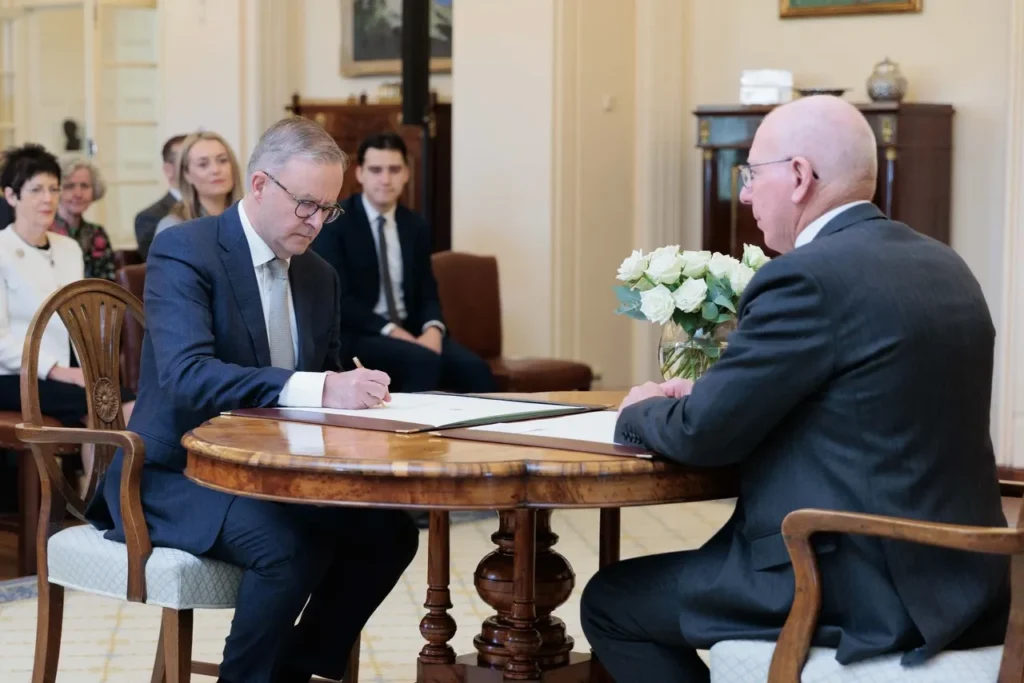
A Royal Commission has been announced into the former debt assessment and recovery scheme commonly known as Robodebt.
According to the media release from Prime Minister Anthony Albanese announcing the inquiry, it will examine, among other things:
· The establishment, design and implementation of the scheme; who was responsible for it; why they considered Robodebt necessary; and, any concerns raised regarding the legality and fairness;
· The handling of concerns raised about the scheme, including adverse decisions made by the Administrative Appeals Tribunal;
· The outcomes of the scheme, including the harm to vulnerable individuals and the total financial cost to government; and
· Measures needed to prevent similar failures in public administration.
“The Royal Commission’s focus will be on decisions made by those in positions of seniority,” the PMO release said.
“The Royal Commissioner is Catherine Holmes AC SC. The Commissioner is a former Chief Justice of the Supreme Court of Queensland and brings vast experience from a distinguished legal career.
“The Commissioner led the Queensland Floods Commission of Inquiry following the 2010-11 floods and acted as counsel assisting the Commission of Inquiry into Abuse of Children in Queensland Institutions in 1998-99.
“The Government has allocated $30 million for the Royal Commission and the final report will be delivered to the Governor-General by 18 April 2023.”
The headquarters of the Royal Commission will be in Brisbane and information about hearing dates and how to participate will be provided in the coming weeks.
A legal financial assistance scheme will be available to people requested to formally engage with the Royal Commission, for example, to appear as a witness.
This Royal Commission was part of Labor’s 2022 election platform.
According to Attorney General Mark Dreyfus the Commission will “have full power to inquire, full power to require the production of documents, full power to require witnesses to appear before it and make whatever recommendations the Commission thinks are appropriate as to any actions arising from what has already occurred and, most importantly, how we can make sure, as a nation, that this never happens again”.
Former Ministers including Stuart Robert, Christian Porter, and even then-Treasurer Scott Morrison may be called to give evidence at the Royal Commission.
Outlining the terms of reference for the Royal Commission into Robodebt at a media conference on August 24, 2022, Albanese said: “Robodebt was the Coalition’s brainchild – a computer program to find out if someone owed the Government money rather than involving a real person.
“We know that almost 400,000 Australians fell victim to this cruel system, a human tragedy with very real consequences for its victims.
“It is vital that we get to the bottom of how Robodebt came about so that we can ensure that it can never, ever happen again,” the Prime Minister said.
“Every single one of my local constituents, and every Member of Parliament can tell stories like this, who came through to my electorate office with one of these alleged debts had it either wiped in full or wiped in almost-full.
“What that told us was that those people who were more capable of going to their local member and making representations got their debts squashed because they didn’t owe any money. But what we also know is that those people who were most vulnerable were the least likely to go to their local member, to have the confidence to do that. And that’s why we need to get to the heart of why this occurred,” he said.
“The Robodebt fiasco was something that should be of deep concern to all Australians. We know, as late back as 2016, there were members of the public flagging concerns that these debts weren’t right, that there were problems with it, and we saw the government take no action whatsoever,” said Minister for Social Services, Amanda Rishworth.
“These concerns, these stories where people were finding debt notices which they believed were not correct, kept coming and the complaints continued through 2017. These were real flags that the government should have listened to.
“And there are real questions about why these concerns, these complaints, these increasing problems – why the former government didn’t take any action.
“I think the human consequence of what happened to people is also important as well. We’ve continued to hear stories where individuals felt increasingly anxious, depressed and worried because these debts kept coming and they couldn’t understand them.
“I think there is a real issue here about why the government didn’t act, why they didn’t listen to the concerns coming through, and what were the real impacts. Of course, we know this program was meant to save money. It clearly didn’t save money and the human cost was great.”
Bill Shorten, in his capacity of Minister for Government Services added: “The last government gave us robo-victims. The last government gave us robo-denial. Today, Labor will give the victims some robo-justice.
According to Shorten, Robodebt was an online automated debt collection system started by the previous government in July of 2015.
“It continued to November of 2019, when a successful class action finally forced the government at the door of the final hearing of the class action to stop this program,” Shorten said.
“Robodebt was a shameful chapter in the history of public administration in this country. It was a massive failure of policy and law.
“Citizens will recollect that the government unlawfully raised debts of at least $1.76 billion against 433,000 Australian citizens. The previous Liberal administrations had no lawful right to raise these debts. It caused untold harm.
“I was speaking to some of the victims before this announcement today. There was Maddy, who received a debt which she didn’t owe at all from her time she was receiving Youth Allowance, legitimately, whilst also holding down jobs at university. She attempted suicide. We’ve spoken to Catherine, a 45-year-old lady who didn’t know she owed an unlawful debt of $3,500 until it was taken out of her tax return. We’ve spoken to Anjuli, she was a victim of domestic violence. She fled to a refuge while pregnant. She had been holding down three jobs and she was chased for a debt that she never owed. There’s a real toll.”
Labor helped organise the class action which has seen justice and the money repaid for the victims.
But, Shorten said, “we still don’t know who conceived of this”.
“This Royal Commission has to fill a gap. At one level, it was certainly the conduct of irresponsible ministers and senior public servants. At another level, no-one ever asked the question: ‘maybe the machine was wrong and the people complaining were right’.
“Until we have these answers, we will never be able to have full restitution for the victims, nor can we guarantee that it can never happen again.
“The class action was about seeking restitution of the money that was wrongly paid, or having the debts stopped. That class action was successful. But just to remind people what happened – on the day that the hearings were to start, the Commonwealth finally instructed its solicitors, six years after this sorry program started, that it would declare that it was unlawful. ‘Yes, we’d pay back the money’ – $112 million in taxpayer money in interest. But we never got to hear how the scheme got to be conceived, designed. It was unlawful. There was no legal power to do what they were doing, to take the humans out of the system, to reverse the onus of proof.
“We never got to hear that once people started saying it may be unlawful, why did the government continue it for four and a half years? Why did Minister Tudge in 2016 or 2017 say, ‘we will hunt you down’? He was proposing to hunt citizens of this country down for debts they didn’t owe, using legal power that he didn’t have. The government … never satisfactorily explained how this monster scheme got away from the system and just had a life of its own.”


